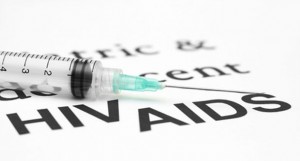March saw biggest spike in HIV cases

This was a 35-percent increase over figures for the same period in 2013.
Of the 498 new cases, 53 were already full-blown AIDS, the DOH said.
The new HIV cases bring to 1,432 the total number reported from January to March this year. For the 30-year period from 1984 to 2014, there were 17,948 HIV cases reported.
The Philippine HIV and AIDS Registry showed that the bulk of the new HIV cases were reported in the National Capital Region, Central Visayas, Calabarzon and Central Luzon.
Ninety-five percent of the cases were males, 58 percent of them belonging to the 20-29 age group.
Article continues after this advertisementOf the 498 new cases, 443 were contracted through unprotected sex, with men having sex with other men as the predominant mode of sexual transmission.
Article continues after this advertisementFifty-four were contracted through needle-sharing among injecting drug users, while one was a case of a mother-to-child transmission.
Eighty-nine percent of the cases were still asymptomatic at the time of reporting, the DOH said.
Also from January to March this year, there was a total of 34 deaths reported among people with HIV, all of them males.
The highest number of deaths occurred in the 25-29 age group, followed by 30-34 and 20-24 year-olds, the DOH said.
Last March alone, 17 deaths were reported, it added.
As of March also, there were 6,168 people living with HIV who were reported to be undergoing antiretroviral therapy, the DOH said.
Having HIV leads to a condition characterized by the weakening or breakdown of the body’s immune system.
As part of its campaign against HIV/AIDS, the Department of Health’s National Capital Region office had earlier said it was “flooding” massage parlors, nightclubs and KTV bars with two items that promote safe sex: free condoms and information flyers.
Some legislators, meanwhile, are pushing for an amendment to Republic Act No. 8504, or the Philippine AIDS Prevention and Control Act of 1998.
House Bill No. 3243, or the Revised Philippine HIV and AIDS Policy and Program Act of 2013, seeks to amend the 16-year-old national AIDS law. It is currently being deliberated upon in the House committee on health.
In its present form, RA 8504 requires individuals under 18 years of age to obtain the written consent of their parents or legal guardian before they can avail themselves of HIV testing services.
Under HB 3243, a person 15 years old and above may avail himself or herself of HIV testing and counseling options if he or she voluntarily expresses an intention to access these services.